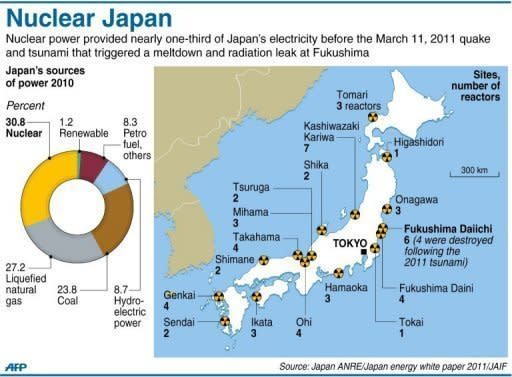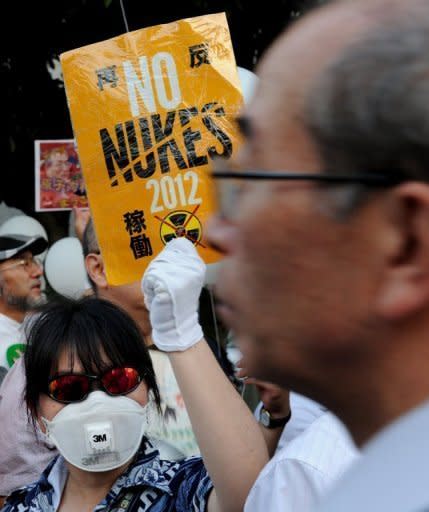Japan will go nuclear free, PM insists
Japan will go nuclear free, the prime minister insisted Friday, rebutting criticism that his government was floundering and unable to come up with a coherent position on the issue. Yoshihiko Noda's administration last week declared it was aiming to eliminate atomic power from the country's energy mix by 2040. But an announcement the next day by his trade minister that two partially-built reactors could be finished and put to work cast doubt on the government's determination. And newspaper reports that the cabinet had not endorsed the plan led to criticism Noda was trying to be all things to all people, hoping to appease a nuclear-skeptic public while keeping energy-hungry businesses onside. "Don't get me wrong," Noda said Friday. "We did make a cabinet decision" on the nuclear phase-out policy on September 14. "Japan will seek a no-nuclear society in the 2030s and will realise it. "With an unwavering attitude, we will implement various policies based on this principle. This is a huge policy change that we have made with a genuine determination." Last Friday cabinet members had declared a three-pronged strategy of tougher safety standards, the shuttering of reactors 40 years old and a ban on the building of new units. Policy minister Motohisa Furukawa told a news conference that reports the government was divided on the issue were wide of the mark. "We will mobilise all possible measures to achieve zero nuclear in the 2030s," Furukawa said. "What the government decided was a reversal of policies on nuclear energy promotion that lasted for half a century." The rearguard action comes after a major newspaper lambasted the government as "incoherent" because of a vague announcement of "aims", rather than any actual policy. The government "tried to be friendly with both anti-nuclear bloc and pro-nuclear bloc, and that resulted in revealing it is incoherent," Japan's biggest newspaper, the Yomiuri Shimbun said on Thursday. The influential Mainichi Shimbun said the cabinet had done no more than given the nod to a plan to "draft an energy and environment policy based on the strategy (of phasing out nuclear power in 2030s), while continuously verifying and reviewing that policy." "Ad-hoc policy making and trying to appease everyone has resulted in a vague position" on nuclear policy, the paper said in an editorial. With the societal scars from the tsunami-sparked meltdowns at Fukushima refusing to heal, there has been a groundswell of public opposition to nuclear power, which once provided a third of energy-hungry Japan's electricity. A vocal protest movement drawn from a cross-section of the country's usually uncomplaining society regularly stages demonstrations outside the prime minister's office calling for nuclear power to be abandoned. The issue has taken on a greater significance with a general election likely some time this year. But set against that is Japan's influential business community, who continue to sound dire warnings about the dangers of power shortages while all but two of the country's 50 working nuclear reactors are offline. Manufacturers warn that the increased cost of fossil fuel-generated power will further erode their competitive edge against foreign rivals already benefiting from lower labour costs. "The biggest reason for the faulty new energy strategy is that the government and the (ruling) Democratic Party of Japan announced the popular 'zero-nuclear' policy too quickly without much deliberation," the Yomiuri Shimbun said. "Therefore, they ended up running about in confusion in the face of strong opposition," it said.




